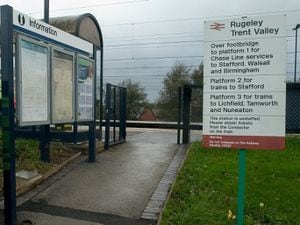More women in debt in the region than men
More women in the Black Country and Staffordshire have found themselves formally in debt than men, figures reveal.

Think tank the Women’s Budget Group says women are at greater risk of experiencing poverty because they carry out more unpaid work, which reduces the opportunity to generate an income.
People who take out formal insolvency measures, such as bankruptcy or a voluntary arrangement to pay off their debt, are added to the Individual Insolvency Register – meaning they are formally in debt.
Insolvency Service data shows 556 people fell in debt in Wolverhampton in 2019 – and at the latest count, the insolvency rate for women was 32.6 per 10,000 adults, higher than the rate of 22.6 for men. Of those that were in debt in Wolverhampton, 393 entered into an individual voluntary agreement with their creditors to pay off their debts, while 49 went bankrupt.
A total of 708 people fell into debt in Walsall 2019 – the rate for women was 34.3 per 10,000 adults and for men 30.8. The data shows 462 entered into an individual voluntary agreement with their creditors to pay off their debts, while 88 went bankrupt.
Data shows 712 people in debt in Sandwell in 2019 – with a rate of 30.1 per 10,000 adults for women, and 27.8 for men. Of those that were in debt in Sandwell, 486 entered into an individual voluntary agreement with their creditors to pay off their debts, while 76 went bankrupt.
While 617 fell into debt in Dudley that year – with the latest insolvency rate for women at 25 per 10,000 adults, higher than the 23.8 for men. Of those that were in debt in Dudley, 478 entered into an individual voluntary agreement with their creditors to pay off their debts, while 58 went bankrupt.
A total of 258 people were in debt in Stafford in 2019 – with the insolvency rate at 25.5 per 10,000 adults for women and 20.7 for men. Of those that were in debt in Stafford, 165 entered into an individual voluntary agreement with their creditors to pay off their debts, while 50 went bankrupt.
Hardship
And 256 people fell into debt in Cannock Chase that year – with the rate 33.6 per 10,000 adults for women and 29.9 for men. Of those that were in debt in Cannock Chase, 172 entered into an individual voluntary agreement with their creditors to pay off their debts, while 26 went bankrupt.
Across England and Wales 121,900 people were insolvent in 2019 – equating to a rate of 27.8 insolvencies per 10,000 adults for women and 24.1 for men.
Dr Mary-Ann Stephenson, director at the Women’s Budget Group, said: “The reason a higher proportion of women were insolvent is because women do the majority of unpaid work, which means they have less time for paid work so they earn less, own less and are more likely to be poor.
“In particular, women are 90 per cent of single parents who are particularly likely to be living in poverty.”
She added that women were more likely to have been adversely affected by the pandemic because they were at greater risk of being furloughed or working in sectors badly hit by job losses, such as high street retail.
The charity Citizens Advice estimates that around one in seven people across the country has fallen behind on their bills during the pandemic.
A spokesman said: “The number of people Citizens Advice helps with debt is climbing as economic hardship worsens and protections for people unable to pay essential bills have weakened since the first lockdown.
“The Government should focus on council tax and rent arrears where the consequences for non-payment are most severe and the levels of debts are greatest.”





